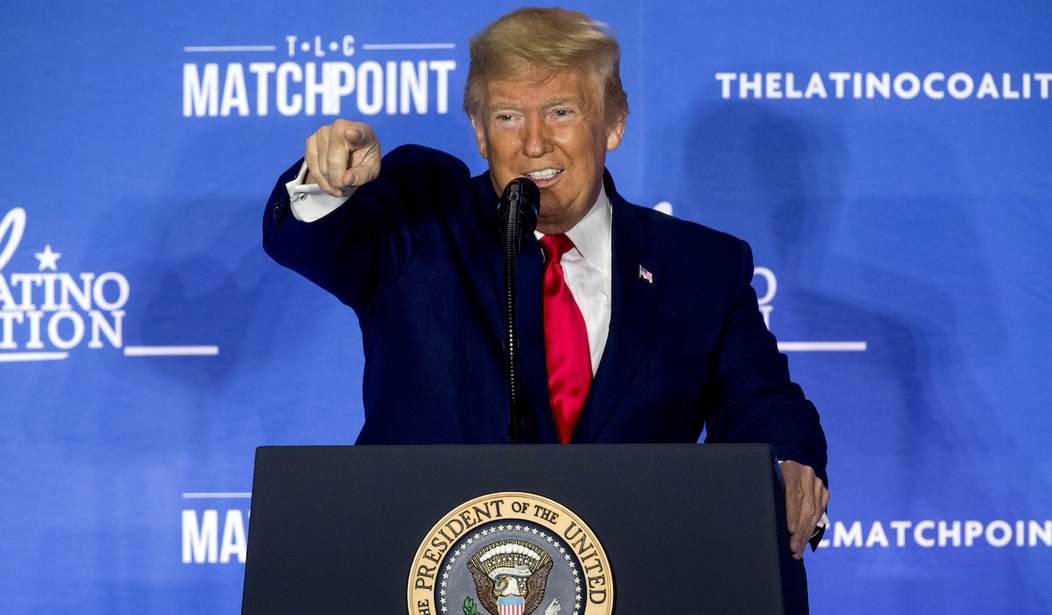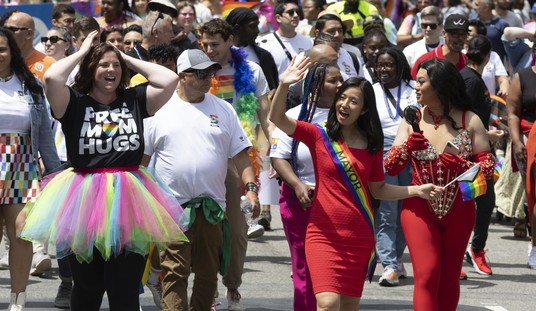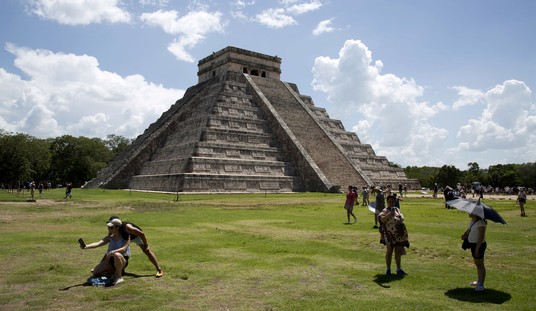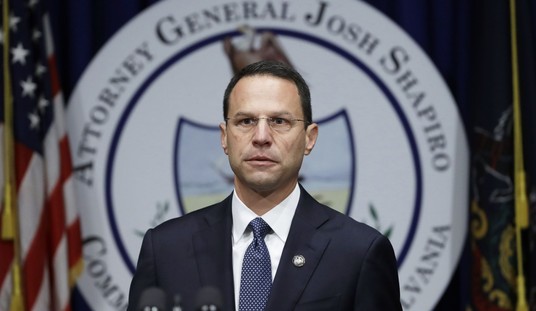The New York Times ran an interesting story yesterday that is headlined A Vexing Question for Democrats: What Drives Latino Men to Republicans?
While Democrats won the vast majority of Hispanic voters in the 2020 presidential race, the results also showed Republicans making inroads with this demographic, the largest nonwhite voting group — and particularly among Latino men. According to exit polls, 36 percent of Latino men voted for Donald J. Trump in 2020, up from 32 percent in 2016. These voters also helped Republicans win several House seats in racially diverse districts that Democrats thought were winnable, particularly in Texas and Florida. Both parties see winning more Hispanic votes as critical in future elections.
Yet a question still lingers from the most recent one, especially for Democrats who have long believed they had a major edge: What is driving the political views of Latino men?
The question is the sort of myopic one written by someone for whom political history started around 2008 at the earliest. In fact, what President Trump did was bring Latinos back to the Republican Party in about the same numbers before we nominated John McCain and Mitt Romney to be our standard-bearers. George Bush got 44% of the Latino vote in 2004. (If you want to see the trend-over-time in presidential votes by demographic, you could do a lot worse than the NYT infographic from 2016, which doesn’t seem to have been redone in 2020. The menu bar at the top of the screen as you scroll down goes back to 1972.) President Trump also got Black voters back to where they were in 1988-96.
The article is full of anecdotes that are data as far as most of the media are concerned.
For decades, Democratic candidates worked with the assumption that if Latinos voted in higher numbers, the party was more likely to win. But interviews with dozens of Hispanic men from across the country who voted Republican last year showed deep frustration with such presumptions, and rejected the idea that Latino men would instinctively support liberal candidates. These men challenged the notion that they were part of a minority ethnic group or demographic reliant on Democrats; many of them grew up in areas where Hispanics are the majority and are represented in government. And they said many Democrats did not understand how much Latino men identified with being a provider — earning enough money to support their families is central to the way they view both themselves and the political world.
Like any voter, these men are also driven by their opinions on a variety of issues: Many mention their anti-abortion views, support for gun rights and strict immigration policies. They have watched their friends and relatives go to western Texas to work the oil fields, and worry that new environmental regulations will wipe out the industry there. Still, most say their favorable view of Republicans stems from economic concerns, a desire for low taxes and few regulations. They say they want to support the party they believe will allow them to work and become wealthy.
OMG!!! Do you mean Latinos are just like everyone else? Quelle horreur!
As an aside, I’m pretty much of the Jeff Charles school of thought that the GOP’s problem with Black and Latino voters is largely due to a lack of serious outreach by state and local party organizations.
Towards the end of the article, you find this squirreled away.
Some of the frustrations voiced by Hispanic Republican men are stoked by misinformation, including conspiracy theories claiming that the “deep state” took over during the Trump administration and a belief that Black Lives Matter protests caused widespread violence.
Some quick thoughts on this. If you are going to write about misinformation and conspiracy theories, take the time to understand what you are writing about. Don’t be an ass-clown. No one, as far as I can tell, no one ever claimed the “deep state” took over during the Trump administration; the claim, a provable one, I think, is that the Deep State fought President Trump’s efforts to impose his policies. If you claim that “Black Lives Matter protests caused widespread violence” is a mere belief, you have problems that will only be addressed by large amounts of industrial strength psychotropic drugs.
The US Crisis Monitor, a joint project of the Armed Conflict Location & Event Data Project (ACLED) and the Bridging Divides Initiative (BDI) at Princeton University, neither of these are noted for either rightwing politics or spreading misinformation, documents 671 riots in the United States between May 26 and September 12, 2020. Of those, 91% were caused by BLM. Axios reported that insured, I say again, insured losses from the BLM riots were projected to exceed $2 billion, or over twice the amount of the Rodney King riots. This does not take into consideration uninsured losses and the loss of income generated by businesses destroyed by the riots.
Also, you can’t escape the same smug classism in this description by a privileged New York Times reporter who obviously has little real knowledge of working-class lives of any color or ethnicity. It harkens back to the 1995 Washington Post article, when plumbing the mysterious depths of Evangelical Christianity for reasons why they were voting for conservative politicians rather than Godless atheists, decided that it was because they were “poor, undereducated and easily led.” You can’t read this article without that Conservatives in the Mist vibe that Jonah Goldberg wrote about back when he seemed to be conservative.
The bottom line is that Latinos vote for the GOP for the same reason that thinking working-class people of all races and ethnicities vote for the GOP. We do a crap job of reaching them, and we need to do better. They don’t vote for the GOP because they are prone to believing stuff that isn’t true or buying conspiracy theories. That is what the media do.













Join the conversation as a VIP Member